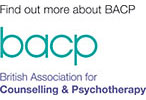One in three people in the UK have had counselling with 65% of people improving after just seven sessions
Are you struggling with a difficulty in your life and need some help?
Would you like to improve your personal and professional relationships?
Do you want to talk to someone who will listen without judgement?
Hello. I'm Indira Chima and I run The Counselling Living Room® near St Albans where I provide counselling to individuals and couples in a straightforward, contemporary and relaxed setting.
My counselling experience is diverse and includes working with people who have problems with anxiety, depression, work stress and low self esteem. I have helped people overcome issues such as self harm, addictions, disordered eating and the emotional trauma caused by abuse. I also work with both individuals and couples who are looking for support in their relationships.
Ready to find out more? Visit Individual Counselling, Couple Counselling or Online Counselling pages to find out more about the different ways I can help you.
Visit the Questions page for information on all aspects of counselling.
Whilst psychodynamic theory informs my practice, I use a client-focussed, integrative approach which simply means that I have different tools in my toolkit and will find the right one for you!
- Get in Touch
 07719 626383
07719 626383 hello@thecounsellinglivingroom.co.uk
hello@thecounsellinglivingroom.co.uk



